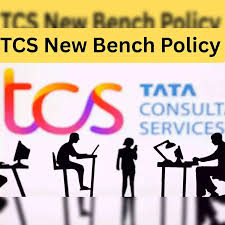TCS Bench Period: Insights on the 35-Day Policy

Introduction
The bench period at Tata Consultancy Services (TCS) has become a significant talking point in the tech industry, especially in the context of the rapidly changing job landscape. Currently, TCS has implemented a 35-day bench period, which allows employees without active project assignments to remain on payroll while upskilling or searching for new assignments. Understanding this policy is essential as it impacts employee morale, company performance, and the overall adaptability of the workforce in a post-pandemic era.
What is the TCS Bench Period?
In the IT services sector, a “bench” refers to employees who are not assigned to any active projects. TCS’s bench policy of 35 days provides a structured time frame for employees to be engaged in skilling initiatives or internal mobility. This period comes after a project completion and allows employees to prepare for their next roles within the organization.
Recent Developments
Recent reports indicate that TCS is currently facing economic pressures due to shifts in client requirements and a constrained global market. The implementation of the 35-day bench period is seen as a strategic move to ensure that employees remain productive during slower periods while still receiving a paycheck. This decision comes amidst concerns about layoffs and job security in the IT sector; however, TCS aims to reassure its workforce by maximizing retention through this policy.
Employee Impact and Perspectives
While the 35-day bench period allows time for skilling and transition, it has also raised concerns among employees regarding job security and project availability. Many workers view this period as an opportunity to learn new technologies and methodologies that enhance their competitive edge in the job market. However, uncertainty remains about what happens after the 35 days if no project is found or if demand does not increase.
Conclusion
The 35-day bench period at TCS embodies a dual challenge and opportunity for the company and its employees. It emphasizes the necessity of continuous learning and agility in the tech industry. Looking forward, maintaining a balance between employee welfare and operational efficiency will be vital for TCS to navigate challenges and leverage potential growth. As organizations continue to adapt to changing market conditions, policies such as this will likely evolve and play a crucial role in shaping the future of employment in the IT sector.









